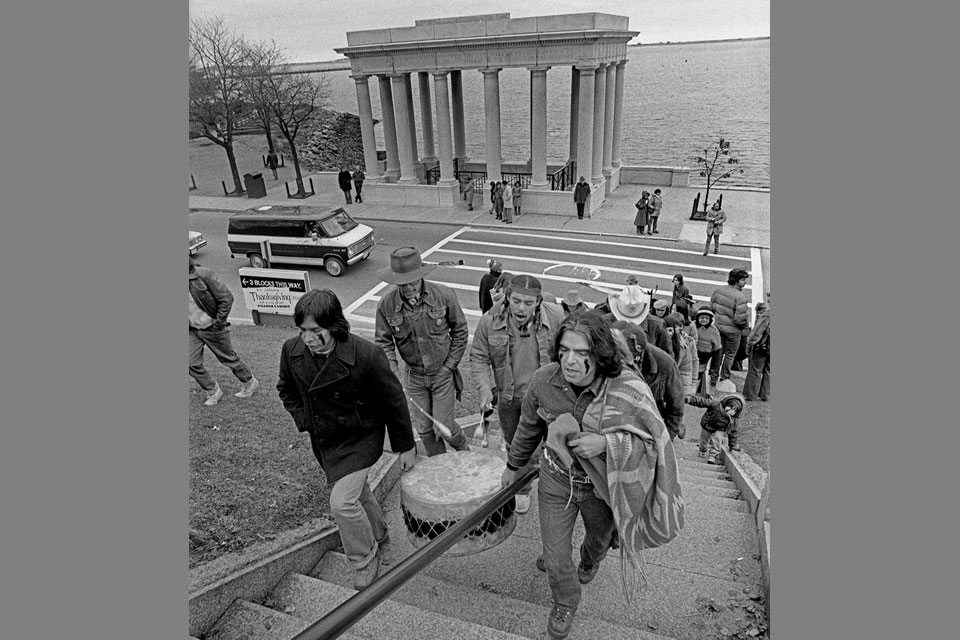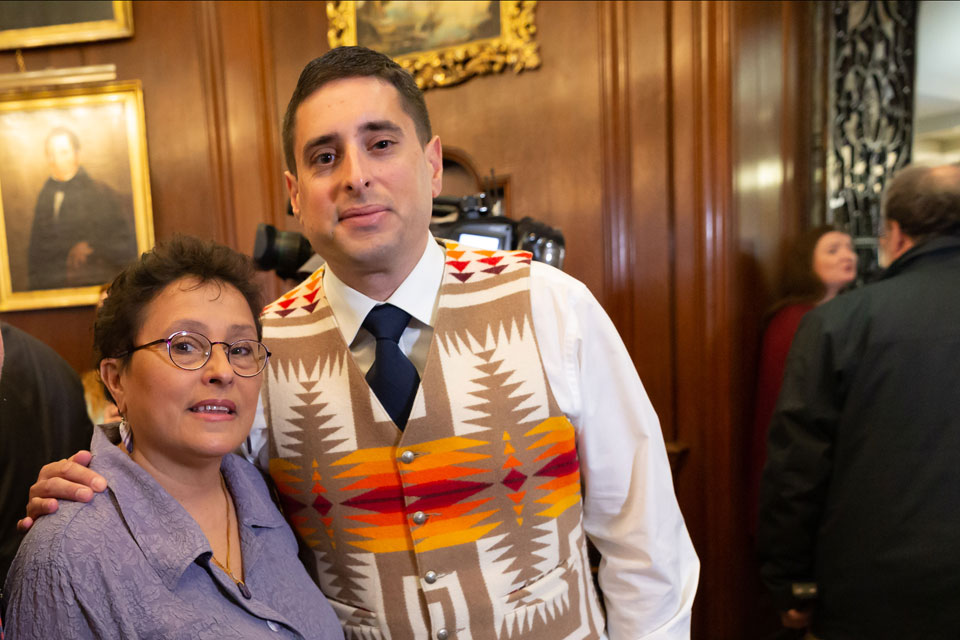THE TRANSATLANTIC MAGAZINE
THE TRANSATLANTIC MAGAZINE

The traditional Turkey meal-driven American Thanksgiving Day is something we will all be sharing today. A large part of the narrative is how the Native America Wampanoag people helped the colonists who arrived on the Mayflower in 1620, and how they all shared a feast. But this is not the full story. In the eyes of the descendants of those Native Americans, Thanksgiving Day ignores the dreadful consequences to their people of the coming of the white man – disease, slavery and the loss of theoir lands.
Fifty years ago, on the 350th anniversary of the Mayflower’s voyage the leader of the Wampanoag, Wamsutta, also known as Frank James, was invited to speak at a Thanksgiving dinner in Plymouth, Massachusetts. He planned to raise the plight of his people. The organizers refused to let him do so, revising his speech into words that he felt unable to read out, and he was ‘uninvited’ from the programme. Instead he led a march to the statue of former Wampanoag leader, Ousamequin. This action led to the creation of the National Day of Mourning for the Wampanoag people, which takes place each year on Thanksgiving Day.
We interviewed Steven Peters, a Wampanoag Tribe spokesman about what Thanksgiving Day and the National Day of Mourning mean to Native Americans.
Steven, thanks for speaking with The American at this important time. The Wampanoag people and other Native Americans gather each Thanksgiving Day to commemorate a National Day of Mourning. Will it happen this year? Will it be different to previous years?
Yes, the National Day of Mourning will continue this year. It's a day for Wampanoag people, indigenous people and friends to gather and protest the injustices of the past which had largely been pushed aside in the history books and to protest for equal rights and sovereign rights for Native Americans across the country.
This is the 50th National Day of Mourning. Has the situation of the Wampanoag changed since the first one was led by Wamsutta / Frank James? If so, for better or worse?
It's actually the 51st National Day of Mourning...which is a bit of mathematical conundrum. 50 years ago, Frank James was censored and denied a platform to tell the history of the Mayflower crossing from the perspective of our ancestors. Today, we are in a very different place. The organizations that have been charged with the commemoration have acknowledged that history was not always kind to the Natives and that those events need to be shared. That is a huge move forward. However, in other areas around civil rights and respecting the sovereign rights of the Indigenous Tribes in this country we have failed to make real progress.
Most of our readers will celebrate Thanksgiving with a traditional Turkey meal. How do you feel about this - do you object to it?
I think it's great. My ancestors had 4 harvest festivals throughout the year. Gathering with family, enjoying our company, sharing our blessings and giving thanks for all that we have is a good thing. I say have more thanksgiving events throughout the year. I also ask that you take a moment in that day to remember what happened to my people and the history as it was recorded and not the narrative that we had been given in the history books.
What would you like non-Native Americans to think about your side of the Thanksgiving story?
It's important to understand the Thanksgiving holiday is very much a product of America. It's a product that was developed at the expense of accuracy and the culture of my people.
Could the Wampanoag's story and the National Day of Mourning be integrated with the wider Thanksgiving Day? Or should they be kept separate?
They are separate events, but I hope the issues that are raised at the National Day of Mourning impact our conversations at the Thanksgiving table.


Support The American - the magazine that supports overseas Americans - by subscribing or buying a copy
Subscribe Now